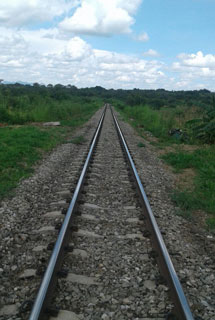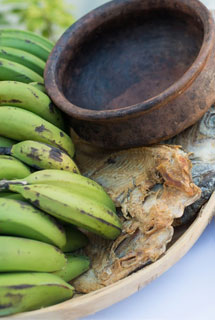Kaleidoscopio, in partnership with the African Centre for Biodiversity (ACB) and Mozambican National Peasants Union (UNAC) released in October 2015 a research report on peasants, seeds and soil fertility in Mozambique. The report focuses on agricultural investment in Beira Corridor and seed system in Mozambique.
The report suggests that in a country where most seeds are still reproduced by farmers themselves, Plant Variety Protection (PVP) laws inhibit farmers from reproducing protected seed varieties, even if these varieties are blended with varieties farmers have nurtured and reproduced historically. The report suggests that a dual system of certification could work better, but this approach would be constrained by impositions such as the Arusha Protocol, passed in July 2015 by the African Regional Intellectual Property Organisation (ARIPO). Of the 18 Member States, Mozambique is one of the four countries that signed the Arusha Protocol.
“The Slave Ship” is the title of an episode of American network CBS program 60 minutes that was aired on the 1st of November 2015. The episode tells the story of the slave trade from Mozambique Island to America. It focuses on the last trip of São José, a Portuguese ship that sunk two Centuries ago in the Cape of Good Hope, South Africa killing more than 200 men, women and children taken from Northern Mozambique.
Kaleidoscopio’s archaeologist Décio Muianga, spoke on the episode as a member of The Slave Wrecks Project, a group of researchers working on recreating the narrative of the slave trade and the ships that connected Africa to Europe and America.
In a conference on the “The Great War in Africa: Economic, cultural and political consequences of the War of 1914-1918 on African societies” Kaleidoscopio’s archaeologist Décio Muianga has suggested that memories of World War I are part of the everyday life of Mozambicans living in Northern Mozambique. His paper “East Africa in the World War I (1914-1918): Tragedy and War Memories in Civilian population of northern Mozambique” presented at the conference, explores local narratives and highlights the presence of “ghosts of European soldiers in present day Niassa and the memories and consequences of the participation of Mozambicans in the battlefields.
The conference “The Great War in Africa: Economic, cultural and political consequences of the War of 1914-1918 on African societies” was held from 20-24th October 2015 at the University Cheikh Anta Diop, in Dakar and organized by the Point Sud Program in collaboration with the Goethe University in Frankfurt/Main, Germany
Kaleidoscopio researchers Pedro Julião e Daniela Guita participated in a waste-art exhibition held in Johannesburg on the 24th of September of 2015. The works presented were the result of a three-day workshop held in Johannesburg under the SLOW-Art project. The SLOW-Art is a regional project involving researchers and artists from the cities of Johannesburg, Pretoria, Maputo and Harare in a collaboration to explore ways in which waste can be used for sustainable livelihoods.

Kaleidoscopio’s archaeologist Albino Jopela and Per Ditlef Fredriksen from the University of Oslo in Norway, have recently published an article on archaeologists’ engagement with local conceptions of place. Drawing on the case of Mozambique the archaeologists suggest that ‘a truly engaged archaeology’ ought to be open to plural epistemologies and explore the potential of the intersections between concepts of professional practitioners and those of the communities they engage with. The example of the Vumba Cultural Landscape in Mozambique is used to show that professionals cannot overlook the fact that many rural communities in this part of Africa do their version of ‘archaeology’ by reconstructing the past via their ancestors. The epistemic and ethical outlook presented by the authors may potentially aid in providing a first step for archaeologists and heritage practitioners to fully recognize the different values, interests and concerns of various stakeholders, thereby allowing the whole society to assume important roles and responsibilities in the interpretation and preservation of ‘the past’. To read the full article click here.
Kaleidoscopio is pleased to announce that at the beginning of September, anthropologist Carla Alberto has joining its Choreographies of intimacy research group. In her position she will build on her initial research on work, leisure and sensuality to explore interpersonal interactions in intimate practices in Mozambique.



